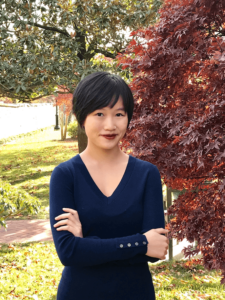by The Cowl Editor on October 25, 2018
Arts & Entertainment
by: Sara Conway ’21 A&E Staff
History repeats itself. R.F. Kuang and her debut novel, The Poppy War alerts a more American- and European-centric audience to the little known histories of modern China and Japan. Through The Poppy War, Kuang writes of a past that should not be forgotten.
Kuang has spoken extensively on the inspiration for The Poppy War. The central focus of the novel is the 1937 Rape of Nanjing, which is sometimes referred to as the “forgotten Holocaust.” Meanwhile, the rest of the 544-page book draws on other events of 20th century China, with the plot being set in a fantastical kingdom heavily influenced by ancient China.
As a historian, Kuang mentioned how The Poppy War resulted from her thorough studies concerning Chinese history. She has a degree in international history from Georgetown University and is currently pursuing a masters in modern Chinese history at the University of Cambridge. She plans on obtaining a second masters in Japanese history as she had said that one cannot “understand modern China without understanding Japan.” In addition, Kuang hopes to acquire a doctorate in Chinese studies in the United States.
I recently got the opportunity to ask Kuang a few questions about the writing of The Poppy War in the wake of publishing a review on her novel in The Cowl two months ago.

Sara Conway (SC): Which character came to you first? Whose voice was the strongest when you were writing?
Rebecca Kuang (RK): Nezha actually came before Rin because I thought that he’d be the main POV character, but I quickly discovered that Rin’s personality just overwhelms every other character’s. Besides that, Jiang was my favorite and by far the easiest to write. Weirdly, he makes more sense than any of the other characters do.
SC: For the readers who can stomach this intense novel, what do you hope they take away from The Poppy War?
RK: History moves in circles, and don’t do drugs.
SC: What was it like researching for this novel?
RK: Pretty much the same as if I were researching an academic paper, except that I didn’t have to cite things and I could make things up if I wanted to. I started with Iris Chang’s The Rape of Nanking, which forms a lot of the thematic and moral core of the story. I also read works by Frank Dikotter, Peter Harmsen, Hans van de Ven, and others on the history of China during World War II. This was a fun project because I got to fuse influences from different historical time periods–so for most worldbuilding consultation, for instance, I drew on sources about the Song Dynasty, even though I was telling a 20th century story.
SC: Was there anything in your research that really caught you off-guard? Did you have a scene or piece of information you really wanted to put into the novel but eventually had to scrap it?
RK: A lot of the horrors of Unit 731 kept me up at night. I had a lot of scenes written where I delved deeper into what was going on at that research facility, but ended up cutting it for pacing reasons. That was probably for the best; those chapters are difficult enough to read as is.
The story continues in the second book of Kuang’s trilogy, The Dragon Republic, coming June 2019.